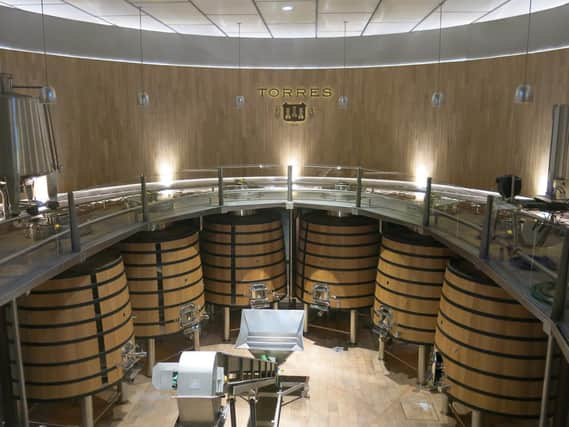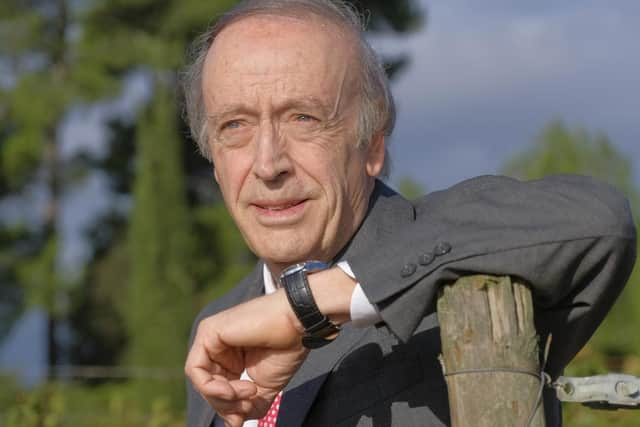Eco-friendly wineries need our support to help protect the planet


And are you composting your kitchen waste? If the answer is yes to all this, then you probably think you are doing what you can for the environment – but is it enough?
Apart from the dreadful effects of the pandemic, 2020 was a pretty bad year in different ways. Wildfires have become normal in some parts of the world.
Advertisement
Hide AdAdvertisement
Hide AdCalifornia saw four million acres of land burned; there were massive bush fires in south-east Australia which blanketed not just Australian cities with smoke, but also affected New Zealand too. And Brazil saw unprecedented fires in 2020 as well.


According to some experts, this is all a result of carbon dioxide which has caused world temperatures to rise and has affected our climate. I know there are arguments from all sides, and some say that this is just part of a regular cycle of climate variations, but for now, there doesn’t seem any harm in trying to reduce carbon emissions, just in case the climate change theories are right.
How does this affect wine? The vine is a very sensitive plant that grows within specific temperatures. Some grapes such as Syrah and Cabernet Sauvignon need warmer climates while Riesling and Sauvignon Blanc appreciate cooler climates.
As temperatures change, growers may need to change the grapes they plant. For this reason some champagne producers are investigating different grapes that will retain the classic acidity of the region. Some champagne producers are investing in UK vineyards, not because they love England but because our climate is cooler and so they can continue to produce the style of wine they are used to.
Advertisement
Hide AdAdvertisement
Hide AdOther winemakers are also putting in contingency plans, and one of these is Miguel Torres who for decades has been working quietly to find out more about climate change, reducing CO2 emissions and generally finding ways that vineyards can reduce their impact on the environment.
Miguel Torres is head of the Spanish wine business of the same name, based in Catalonia. It also has a company in Chile and Miguel’s sister Marimar has a vineyard and winery in California. This is a family that knows about wine. Not only does it produce good wine, it has been recognised as one of the most admired wine brands in the world.
“The climate is definitely changing,” said Miguel when I spoke with him on a Zoom call. “Now we get spring frosts and so we need to build anti-frost towers that stir up the air.
"We get hail and so we need to protect the wines with nets, and then we get heat waves which can turn grapes to raisins on the vines. And fire is a real problem because the grapes actually absorb smoke, tainting the wine that might be made from them. It is not just a surface residue that can be washed off.”
Advertisement
Hide AdAdvertisement
Hide AdTo counteract these effects, Torres has made investments in new vineyards. “We have planted Riesling in a new vineyard 1,000 metres above sea level which a few years ago was thought to be too cold for grapes. Now this land is producing some of the best Riesling wine. We have also bought another estate at 1,200 metres above sea level. At present it is too cold to grow grapes there but who knows what will happen in the future.”
Torres is not just ensuring he can make wine in the future; he is doing his best to undo some of the historic damage that the land has suffered. “We are planting trees, especially in Patagonia in a region that used to be a forested area but fires destroyed them. Now we have planted 2,000 hectares of trees and will continue to plant more. We also have other forests in Spain.”
Torres is also addressing other areas where he can make a difference. “Bag-in-box is interesting because it has a much lower carbon footprint than glass. But if you recycle the glass, then traditional bottles are better for the environment. We need to make sure as much glass as possible is recycled.”
The Torres winery is full of different ways to cut carbon emissions. Most of it is below ground so refrigeration is minimal. There are photovoltaic cells providing electricity and all vehicles are electric.
Advertisement
Hide AdAdvertisement
Hide AdThe winery is also capturing the carbon dioxide generated during fermentation to protect tanks of wine, and is developing ways to store CO2 using algae. It is also cutting back on ploughing the vineyards, since this releases CO2 into the atmosphere.
But one winery has an almost negligible impact on the world’s CO2 emissions, which is why Torres and other wineries are coming together under an umbrella organisation to galvanise the world’s wine producers into cutting their emissions.
The International Wineries for Climate Action (IWCA) is at present a small group of wineries which aim to consistently reduce emissions of CO2. They have a long list of requirements and aims, but one of the key aims is to prevent “green-washing”.
We all know of companies that claim eco-credentials but without outside auditing, the claims can be exaggerated. The IWCA aims to give all wineries a level playing field to start reducing emissions.
Advertisement
Hide AdAdvertisement
Hide AdSo far only Torres in Spain, and the large American producer Jackson Estate are full members of this elite eco-organisation, but others are keen to join, and not just for commercial advantage.
Most people I know in the wine industry want to preserve their environment and the land their children will inherit.
What impressed me during this call with Miguel Torres was that at no point did he imply that going ecological would be good for business.
He doesn’t expect to sell more wine because he is looking after the environment. He is doing this because it is good for us all. So please go out and buy a bottle of Torres wine.
Advertisement
Hide AdAdvertisement
Hide AdI suggest the ripe blackberry and redcurrant fruit in Sangre de Toro, which is widely available in Asda, Booths and Sainsbury’s at around £7.50. And while you are drinking it, think about trees in Patagonia and make sure you recycle your glass bottles.